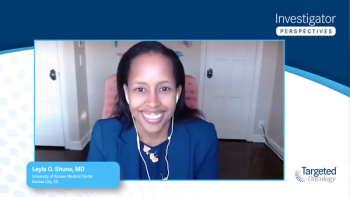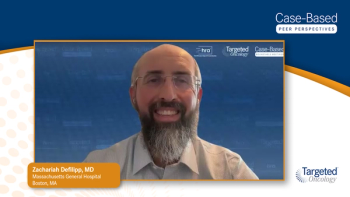
Real-World Data: Elacestrant for ESR1m, ER+, HER2- MBC
Panelists discuss how real-world evidence has reinforced the clinical effectiveness of oral selective estrogen receptor degraders observed in the EMERALD trial, showing consistent benefit—even in more heavily pretreated and diverse patient populations—thereby validating the drug’s utility and expanding its role in routine care for ESR1-mutated metastatic breast cancer.
Episodes in this series

Following the promising results of the EMERALD trial, there was a clear interest in understanding how the drug would perform outside of the controlled environment of clinical studies. Real-world evidence (RWE) has since emerged as a valuable complement to trial data, offering insight into how the agent performs in everyday clinical practice. Unlike clinical trials, where strict inclusion criteria can limit patient diversity, RWE captures treatment outcomes in broader, often more complex patient populations. This includes individuals with comorbidities, varying performance statuses, and a wider range of prior treatments.
Recent real-world datasets presented at major oncology meetings have echoed the EMERALD findings. Interestingly, patients in these studies were often more heavily pretreated—nearly twice as many had received prior chemotherapy or fulvestrant compared to with those in the original trial. Despite this, the real-world data consistently showed a similar median time-to-next treatment of 8 to 9 months, which serves as a surrogate for progression-free survival in such analyses. This suggests that even in less controlled, more variable settings, the agent maintains its clinical effectiveness, reinforcing its value in routine care.
Moreover, the adoption of the therapy in later lines of treatment—sometimes after chemotherapy—illustrates the confidence clinicians have in its utility. The favorable safety profile observed in the trial likely contributed to this trend, encouraging providers to consider the drug even for patients who had already undergone multiple lines of therapy. This real-world validation not only supports the robustness of the original trial findings but also expands the potential scenarios in which the drug can be considered for patients with ESR1-mutated metastatic breast cancer.


















